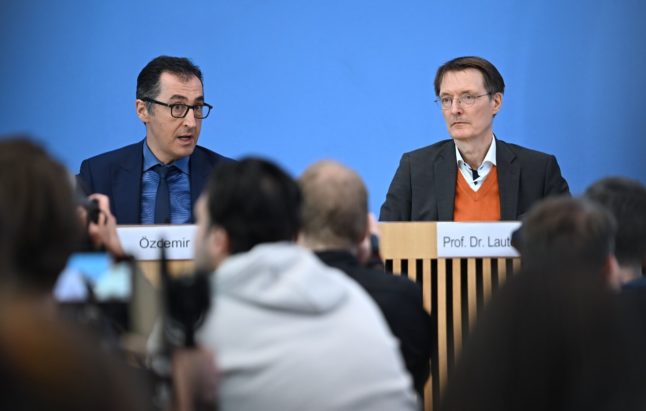The federal traffic light parties of the Social Democrats (SPD), liberal Free Democrats (FDP) and Greens originally committed to legalising marijuana in their coalition agreement shortly after the 2021 election. It’s been one of the most hotly anticipated pieces of upcoming legislation ever since.
The SPD’s Lauterbach and Özdemir of the Greens laid out the government’s exact plans for legalisation Wednesday around midday. It doesn’t, as originally envisioned, involve full cannabis legalisation that would see weed on sale in “coffee shops” similar to those found in Amsterdam, or in pharmacies.
The ministers said legalisation will be softer, at least to start with, following discussions with the European Union, amidst concerns full legalisation could run afoul of EU law.
The Bundestag will now have to approve the draft law. Parliamentarians may make some amendments over the next few months – but the government’s current legalisation plans include these main points:
- Individual people can carry up to 25 grams of cannabis for their own consumption without any legal consequences. More than this could be subject to criminal penalties.
- Each individual person can have up to three cannabis plants to cultivate themselves. This marks a change from the original draft, which envisioned allowing three plants per family rather than three plants per person.
- Members of non-profit social clubs will be allowed to buy up to 25 grams of cannabis at a time from the club, and up to a maximum of 50 grams a month. Members will also be able to smoke their own cannabis there. These cannabis social clubs are similar to ones found in Malta and Spain. Non-members will not be able to smoke there.
- The draft law plans a highly government-controlled and regulated supply chain. Controlled sales will happen in licenced shops, most likely on the premises of scientifically-monitored regional projects. It’s a bit like having to buy beer directly from a monitored brewer, rather than simply at a corner shop.
- Cannabis purchase, possession, or consumption will remain restricted to people 18 years of age and over. Cannabis consumption also won’t be possible near places with a lot of children, such as kitas or schools.
READ ALSO: German word of the day: Bubatz
Parliamentarians with all three traffic light parties support legalisation, with Kristine Lütke, the FDP’s drug policy spokeswoman tweeting “Finally!”
Green health specialist Kirsten Kappert-Gonther called it “a belated Easter egg in the hemp nest.”
Ein verspätetes Osterei liegt im Hanfnest!🥦 https://t.co/o3WGbmrBtY
— Kirsten Kappert-Gonther (@KirstenKappert) April 11, 2023
The opposition conservative Christian Democrats are opposed, saying that the proposed legislation will “cause considerable damage to children and young people.”
Lauterbach says his ministry has had “good progress” with EU officials on the planned law, and that the government’s partial legalisation has already been discussed with the EU.
It’s unclear yet though, what might happen if the government pushes ahead with further plans to loosen marijuana rules, such as by making it available in pharmacies.
The law is expected to pass before summer and take effect either around the end of the year or at the beginning of 2024.
READ ALSO: German Health Minister lays out next steps for cannabis legalisation




 Please whitelist us to continue reading.
Please whitelist us to continue reading.
Member comments